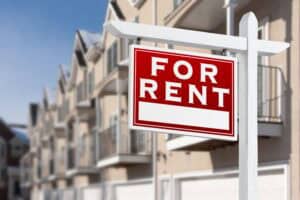Weary-looking Innocent Takura reclined in the seat of his small Honda sedan near the start of a kilometre-long petrol queue that sums up Zimbabwe's deepening economic chaos.

“This life is tough, too tough,” he said as he tried to nap while military police wearing red-berets patrolled the line and marshalled cars slowly towards the pumps at a service station in the centre of the capital Harare.
Drivers waiting hours — even days — for fuel in recent months has been one of the most visible daily signs that Zimbabwe, which has suffered 15 years of economic hardship, was entering a new phase of turmoil.
When the government more than doubled fuel prices last weekend, it lit a tinderbox of public anger that exploded in violent protests.
“A 150 percent price increase. Where in the world have you ever seen that? Which country?” said Takura, a 30-year-old who imports shoes from neighbouring South Africa for a living.
“These policies are unrealistic, irrational. That is why people end up protesting.”
Trade unions called a national strike on Monday and furious demonstrators took to the streets in several cities, with widespread rioting and looting.
The unrest is the fallout from a currency crisis that has left the government unable to pay its bills, bank depositors unable to take out their money and everyday business grinding to a halt.
– A token currency –
Zimbabwe has used the US dollar as its currency since 2009 when hyperinflation peaked at a grotesque 500 billion percent, wiping out the local Zimbabwean dollar.
Abandoning its own currency ended inflation and brought some stability to the country but the supply of US dollar notes gradually dried up.
“When that scarcity became serious, that’s when government started printing ‘bond notes’,” said veteran independent economist John Robertson.
The government’s unlikely plan was to issue a local currency of “bond” notes and coins that it said would be equal in value to the US dollar.
It announced six months in advance that it would introduce the token currency in late 2016.
“That was a big mistake,” said Robertson, because people started to move their dollars out of the country.
On the street, bond notes were soon trading at less than US dollars as few people ever believed that they were equal to greenbacks.
The currency crisis has created a complex daily reality with three tiers of pricing — one low price if you can pay in US dollar cash, and two far higher prices for paying in bond notes or electronically.
The black market is frenzied as companies desperately seek out US dollars so they can pay for the goods that they need to import.
Two weeks ago, the country’s largest brewery and drinks maker Delta said it would only accept US dollars for its products, before the government stepped in and forced it to reverse its decision.
– ‘On its knees’ –
“The country is on its knees because there is no industry, there is no farming, tourist numbers are not impressive, mining is almost non-existent, so there is no economy,” said Christopher Mugaga, head of the National Chamber of Commerce.
“The results of the past three days are just a confirmation of a society which is so polarised,” said Mugaga.
Bread, medicine and other essentials are often in short supply or unavailable.
On Thursday, Zimbabwe announced inflation had risen to 40 percent — its highest rate since the hyperinflation rout — and many believe the real figure is far higher.
Before the protests, Finance Minister Mthuli Ncube said a new currency would be introduced this year but it is unclear how it would function.
He also faces restructuring billions of dollars of defaulted debt before Zimbabwe can raise any new international loans.
Meantime motorists waiting for fuel carry out a postmortem on the protests and how President Emmerson Mnangagwa, 76, came to power in 2017 after the ousting of long-time authoritarian leader Robert Mugabe, 94.
“No! The fuel price was not supposed to go up,” said Prudence Ndlovu, a businesswoman whose car was progressing a few metres (yards) every ten minutes in the petrol queue.
“The pressure is too much. People have been pushed to far.
“This is a country where you wake up one day and you are told by government that your US dollars are worth 1:1 with bond notes. Seriously? It’s like converting money into tissue paper.
“I’m thinking now we have a younger version of Mugabe. It is the same script,” she said.






